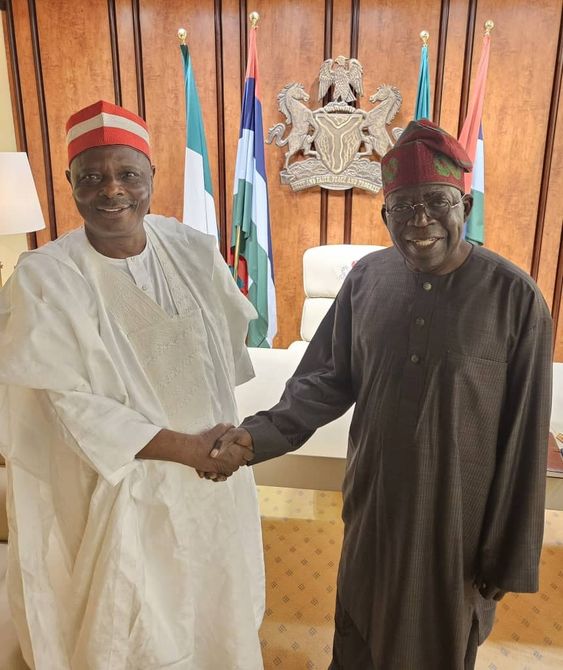Headlines
Kwankwaso: Tinubu and I are of the same generation, but we have no connection to the S’Court judgement on Kano gov’ship

Rabiu Kwankwaso, the presidential candidate of the New Nigeria People’s Party (NNPP) in the 2023 general election, has denied reaching an agreement with President Bola Tinubu regarding the Supreme Court verdict on the Kano State governorship election. Kwankwaso emphasized that he has not done anything to harm anyone and that he has not entered into any agreements with anyone.
He acknowledged that Tinubu is his contemporary in politics, as they both started their political careers around the same time. In 1999, Tinubu served as the governor of Lagos State while Kwankwaso was the deputy speaker of the House of Representatives.
The APC was established by us and we actively participated in the subsequent struggles. It is important for people to understand that lies have a short lifespan. Despite the manipulations orchestrated by certain individuals, the judges have made the right decision.
READ ASLO: BREAKING: Appeal Court dismisses Kano Governor
There is no problem as they have their own party and we have ours. We will collaborate when necessary. As for joining the government, only time will tell. Kwankwaso emphasized that he would not exert control over the Kano governor, but rather provide advice.
He acknowledged that Kabir Yusuf is the governor and even if he were his biological son, he would not rule over him. Kwankwaso has already offered advice even before the government came into power. He highlighted that there are many others like him and he cannot do it alone.
The credit for good governance goes to the governor or president, while the blame is directed at them if they do otherwise. Kwankwaso clarified that people often misunderstand this. During his time as governor, he would consider suggestions from people, even those found in dustbins.
Similar suggestions can be found on radio stations and newspapers. Everything happens at its appointed time and those who succeed should be given the opportunity to prove their worth. Although there were errors in the previous judgment, the Supreme Court rectified what the lower courts had done. In other countries, those who delivered judgments in the lower courts would resign from their positions.
